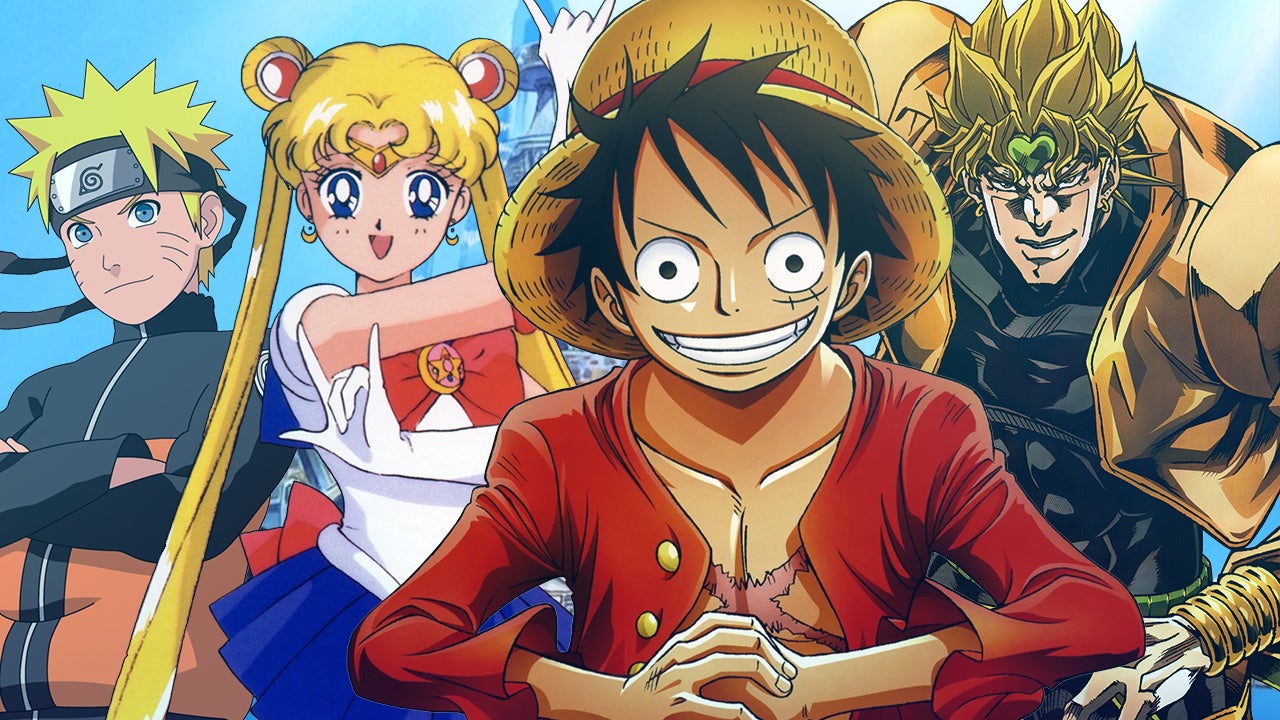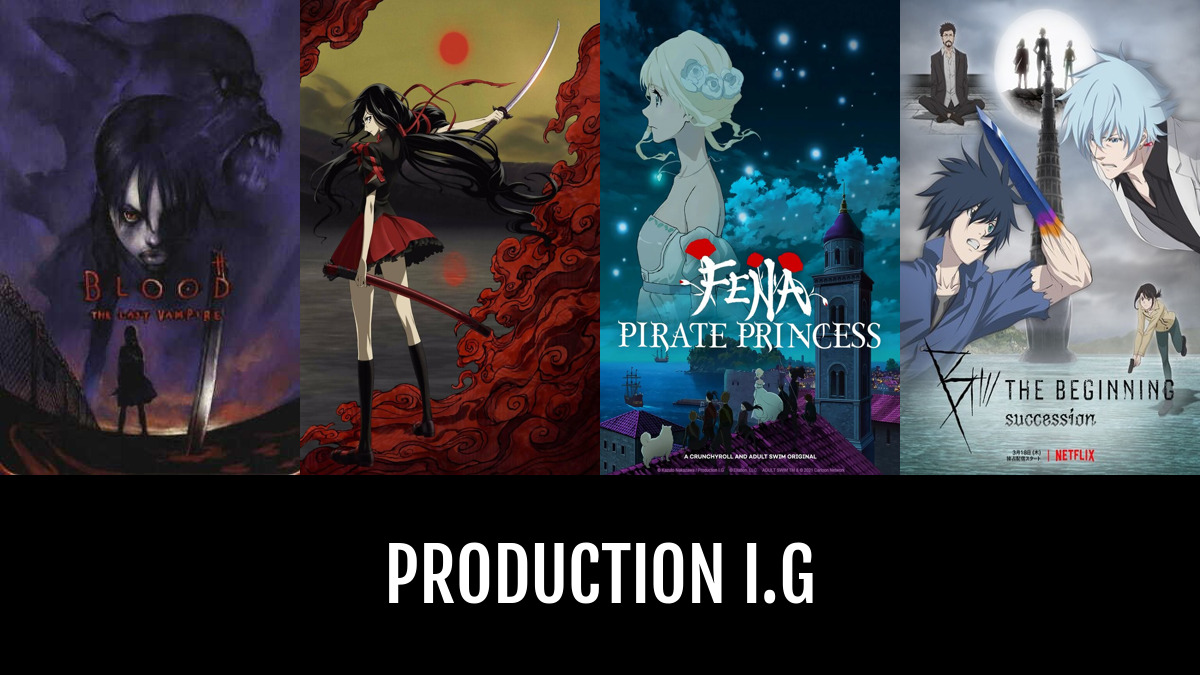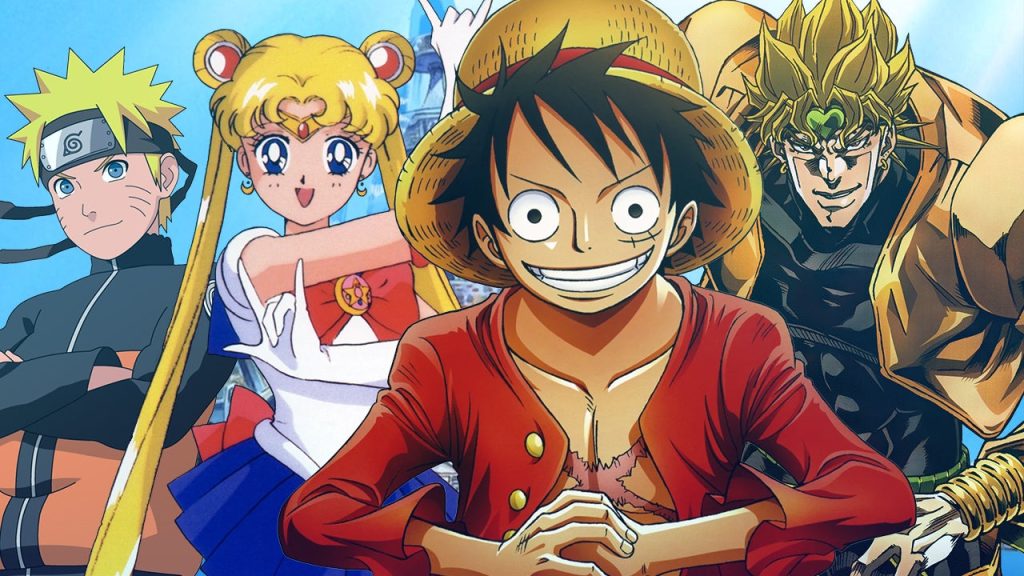No products in the cart.
En
Anime Characters Are Symbols Of Japanese Production I.g
Anime Characters Are Symbols Of Japanese Production I.G

Production I.G is a renowned animation studio in Japan, known for its visually stunning and critically acclaimed anime productions. The studio has been a driving force in the industry, leaving an indelible mark on the world of anime through its memorable characters. These characters transcend the boundaries of entertainment, becoming symbolic representations of Japanese culture, societal values, and the studio’s artistic vision.

The Iconic Archetypes

Production I.G has produced a wide range of characters, each embodying distinct archetypes that have become synonymous with the studio’s style. From the stoic and determined hero to the complex and morally ambiguous anti-hero, these characters serve as reflections of the human condition and the complexities of the modern world.
- The Stoic Hero: These characters are often defined by their unwavering determination, unwavering resolve, and commitment to their ideals. Their stoicism allows them to face adversity with composure and strength, inspiring viewers with their resilience and unwavering spirit. Examples include:
- Shinji Ikari (Neon Genesis Evangelion): Though initially hesitant and prone to self-doubt, Shinji evolves into a courageous hero who confronts his fears and accepts his responsibilities.
- Lelouch Lamperouge (Code Geass): Driven by a deep desire for justice, Lelouch is a complex character who navigates a world of political intrigue and moral dilemmas.
- Light Yagami (Death Note): With intelligence and ambition, Light seeks to reshape the world through his own vision of justice, even if it means resorting to morally questionable methods.
- The Relatable Protagonist: Production I.G often creates characters that are relatable, flawed, and grappling with complex emotions. These protagonists remind viewers that even heroes can struggle with inner conflicts and personal anxieties, making them more human and relatable. Examples include:
- Misato Katsuragi (Neon Genesis Evangelion): Misato is a complex character who struggles with the loss of her loved ones and the burden of responsibility. Her emotional struggles make her a relatable figure for viewers who are dealing with similar issues.
- C.C. (Code Geass): A mysterious and powerful being, C.C. is also vulnerable and prone to moments of doubt and self-reflection. Her complex personality makes her a fascinating and engaging character.
- Rintaro Okabe (Steins;Gate): A quirky and eccentric scientist, Okabe is a relatable character who is passionate about his work and struggles with the complexities of time travel.
- The Complex Antagonist: Production I.G’s antagonists are rarely one-dimensional villains. Instead, they are often complex individuals with their own motivations, justifications, and moral complexities. These characters challenge viewers to question their own perceptions of right and wrong and to understand the motivations behind seemingly villainous actions. Examples include:
- Gendo Ikari (Neon Genesis Evangelion): Gendo is a deeply complex and enigmatic character with a troubled past and motivations that remain shrouded in mystery throughout the series.
- Zero (Code Geass): Zero’s identity and motivations remain a constant mystery, forcing viewers to question the nature of rebellion and the sacrifices made in the pursuit of justice.
- Kira (Death Note): Light Yagami’s alter ego as Kira presents a complex moral dilemma, raising questions about the nature of justice and the potential consequences of wielding absolute power.
- The Supportive Sidekick: These characters provide valuable support to the protagonist, offering guidance, friendship, and encouragement. They often possess distinct personalities and talents that complement the protagonist’s strengths and weaknesses. Examples include:
- Asuka Langley Soryu (Neon Genesis Evangelion): A confident and assertive pilot, Asuka provides a strong contrast to Shinji’s introspective nature. Her support and friendship help him grow and develop throughout the series.
- Kallen Stadtfeld (Code Geass): A skilled and dedicated member of the Black Knights, Kallen is a fierce warrior who stands by Lelouch’s side as he fights for a better world.
- Ryuk (Death Note): While not always a traditional sidekick, Ryuk’s playful and insightful presence offers a unique perspective on Light’s actions and the consequences of his decisions.
- The Symbol of Transformation: Production I.G often uses character development to illustrate the transformative nature of human experience. These characters undergo significant changes, revealing their true potential and the power of personal growth. Examples include:
- Shinji Ikari (Neon Genesis Evangelion): Through his experiences with the Evangelions and his encounters with other characters, Shinji gradually learns to confront his fears, accept his responsibilities, and embrace his own identity.
- Lelouch Lamperouge (Code Geass): Driven by his desire for justice, Lelouch’s actions lead him to question his own beliefs and the consequences of his actions. His journey forces him to confront the complexities of morality and the burdens of leadership.
- Light Yagami (Death Note): Light’s transformation from an idealistic student into a ruthless and manipulative killer showcases the dangers of unchecked power and the corrupting influence of ambition.
Beyond Visual Spectacle
Production I.G’s characters are not merely decorative elements designed to enhance visual appeal. They are complex individuals with multifaceted personalities, motivations, and flaws. They challenge conventional stereotypes, engage with existential themes, and offer profound insights into the human condition.
- Exploring Moral Ambiguity: Many characters in Production I.G’s works operate in shades of gray, challenging viewers to question their own moral compass and the complexities of right and wrong. These characters navigate morally ambiguous situations, forcing viewers to confront the consequences of their choices and the potential for unintended consequences.
- Examining Social Norms: Production I.G’s characters often serve as critical lenses through which to examine social norms and societal expectations. They may grapple with issues of identity, conformity, and the pressures of a changing world.
- Highlighting Psychological Depth: Production I.G’s animators meticulously craft characters with intricate psychological depth. They delve into the complexities of human emotion, exploring themes of trauma, loss, self-doubt, and the search for meaning in a chaotic world.
- Reflecting Japanese Culture: Production I.G’s characters are often infused with elements of Japanese culture and mythology, drawing inspiration from traditional stories and cultural values. This cultural influence adds depth and richness to the characters, creating a unique and memorable aesthetic.
A Legacy of Character
Production I.G’s characters have left an enduring legacy on the world of anime. They have inspired countless creators, influenced generations of fans, and become iconic symbols of the studio’s artistic vision. Through their compelling narratives, complex characters, and visually stunning animation, Production I.G continues to push the boundaries of anime, captivating audiences and leaving an indelible mark on the industry.
Conclusion
Production I.G’s anime characters are more than just fictional creations. They serve as powerful symbols of Japanese production, embodying the studio’s artistic vision and capturing the essence of human experience. Through their intricate character development, exploration of moral ambiguity, and thoughtful examination of social norms, these characters have become timeless icons, leaving a lasting impact on the world of anime and inspiring generations of viewers.
Tags:
- Anime Characters
- Production I.G
- Japanese Animation
- Anime Culture
- Character Development

